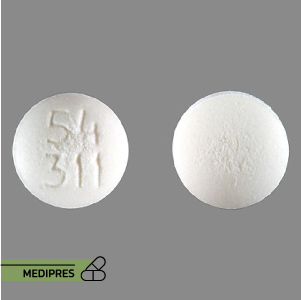
Abiraterone Acetate
23 June, 2023
Accolate
23 June, 2023Acarbose
Generic name: acarbose [ ah-KAR-bose ]
Brand name: Precose
Drug class: Alpha-glucosidase inhibitor
Dosage form: Tablet
Route of administration: Oral
Available Dose:
- Tablets: 25 mg, 50 mg, 100 mg
Mechanism of action: Acarbose works by inhibiting alpha-glucosidase enzymes in the small intestine, which are responsible for breaking down complex carbohydrates into glucose. This action delays glucose absorption and lowers postprandial blood glucose levels.
Drug usage cases: Acarbose is used in the management of Type 2 diabetes mellitus, particularly when diet and exercise alone have not been adequate to control blood sugar levels. It is often used in combination with other diabetes medications.
Drug contra indications: Contraindicated in patients with diabetic ketoacidosis, inflammatory bowel disease, colonic ulceration, partial intestinal obstruction, or any condition that may be worsened by increased gas formation in the intestine.
Side effects: The most common side effects include gastrointestinal issues such as flatulence, diarrhea, and abdominal pain. These effects are usually dose-related and may decrease with time.
Warnings: Liver function should be monitored periodically in patients using acarbose. It should be used with caution in patients with liver or renal impairment. Acarbose may affect the absorption of other oral medications.
Use during pregnancy or breastfeeding: The safety of acarbose during pregnancy and breastfeeding is not well established. It should be used during these times only if clearly needed and if the potential benefits outweigh the potential risks.
Acarbose is beneficial for individuals looking to manage their Type 2 diabetes mellitus, especially for controlling postprandial hyperglycemia. However, due to its mechanism of action, it is essential to monitor for gastrointestinal side effects and adjust the dose accordingly to improve patient tolerance.



